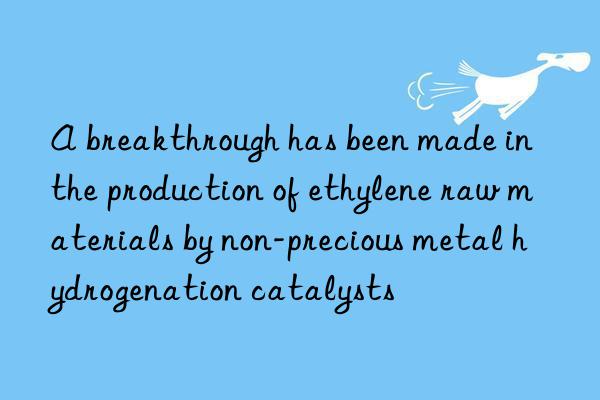
It is understood that all hydrogenation of non-precious metals using CNPC's own technology The catalyst's 200,000 tons/year reformed raffinate hydrogenation unit has been running smoothly for one month in Dalian Petrochemical Company. This not only marks that PetroChina has mastered the independent technology of non-precious metal hydrogenation process in the field of hydrogenation of reformed raffinate, but also means that about 2 million tons/year of domestically available reformed raffinate is expected to realize economical hydrogenation.
It is reported that the current processing capacity of domestic catalytic reforming units is nearly 9 million tons per year, and the available reforming raffinate resources are about 2 million tons per year. The reformed raffinate after the aromatics are extracted from the reformed product oil will contain a certain amount of olefins generated by high-temperature dehydrogenation in the reforming process. To produce ethylene cracking material or qualified solvent oil, it is necessary to remove the olefins in the raffinate oil. Hydrofining removes olefins in raffinate, including two process routes: first hydrofining and then extraction and first extraction and then hydrogenation, and the catalysts used are mostly noble metal catalysts. The advantage of using noble metal catalysts is that the operating temperature is low, and the disadvantage is that the cost is very high, and the requirements for impurities in the raw oil are very strict, and the hydrogenation of reformed raffinate is not economical.
With the joint efforts of China Petroleum and Petrochemical Research Institute and Dalian Petrochemical, non-precious metal hydrogenation catalysts have been stably applied. At present, Dalian Petrochemical's 200,000-ton/year reformed raffinate hydrogenation unit is running smoothly, with a feed rate of 23 tons/hour, an inlet temperature of 140°C, a uniform bed temperature distribution, and the olefin content of the product is far below the target requirement. As a result, Dalian Petrochemical's 450,000 tons of reformed raffinate can be comprehensively utilized each year, with direct economic benefits of nearly 100 million yuan.
As far as we know, the expensive precious metal platinum series catalyst hydrogenation process was mostly used in China's petroleum system before, and there is no precedent for the use of non-precious metal hydrogenation catalysts to produce ethylene raw materials. In June this year, Dalian Petrochemical and the Lanzhou Center of the Petrochemical Institute had an exchange, hoping to jointly use idle devices to complete the replacement of precious metal catalysts in the shortest time and in the most economical way.
To this end, Dalian Petrochemical and the Lanzhou Center of the Petrochemical Institute set up a project team and completed a series of work within 3 months from the determination of the process route, the improvement of catalyst screening, the evaluation of the trial production side line, and the production of catalysts. In order to ensure the safety of industrial applications, technicians took reformed raffinate raw materials from Dalian site to Lanzhou center for sideline evaluation and process condition test many times, and determined process parameters and other conditions.
During the start-up stage of catalyst loading, personnel from both sides communicated and confirmed repeatedly, and completed the filling of the entire reactor with high quality in two days. During the subsequent vulcanization and start-up process, the technicians of both parties stayed on the front line of the plant for 3 days and 3 nights to ensure the smooth and orderly progress of the catalyst vulcanization process and start-up process.



 微信扫一扫打赏
微信扫一扫打赏
